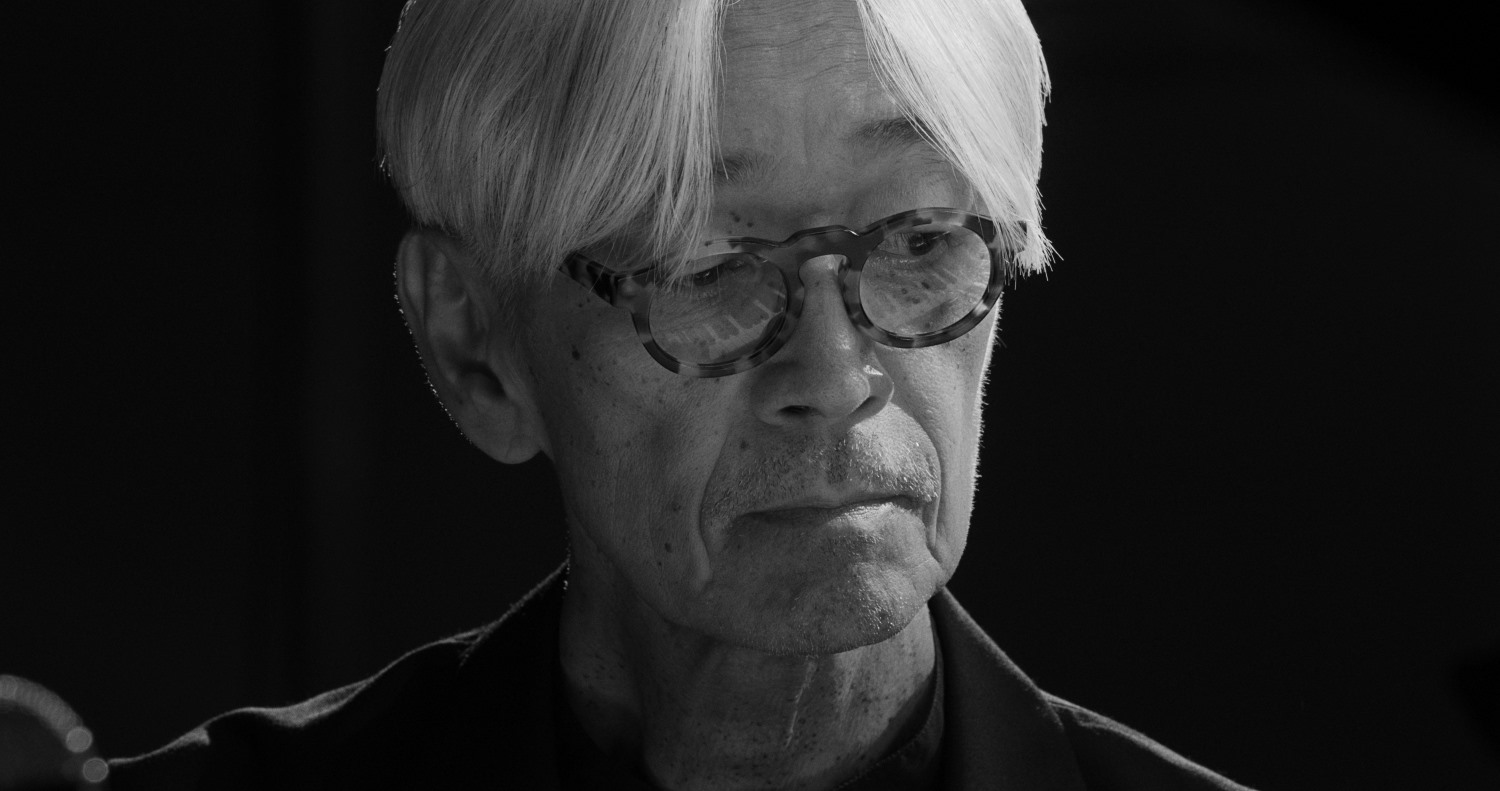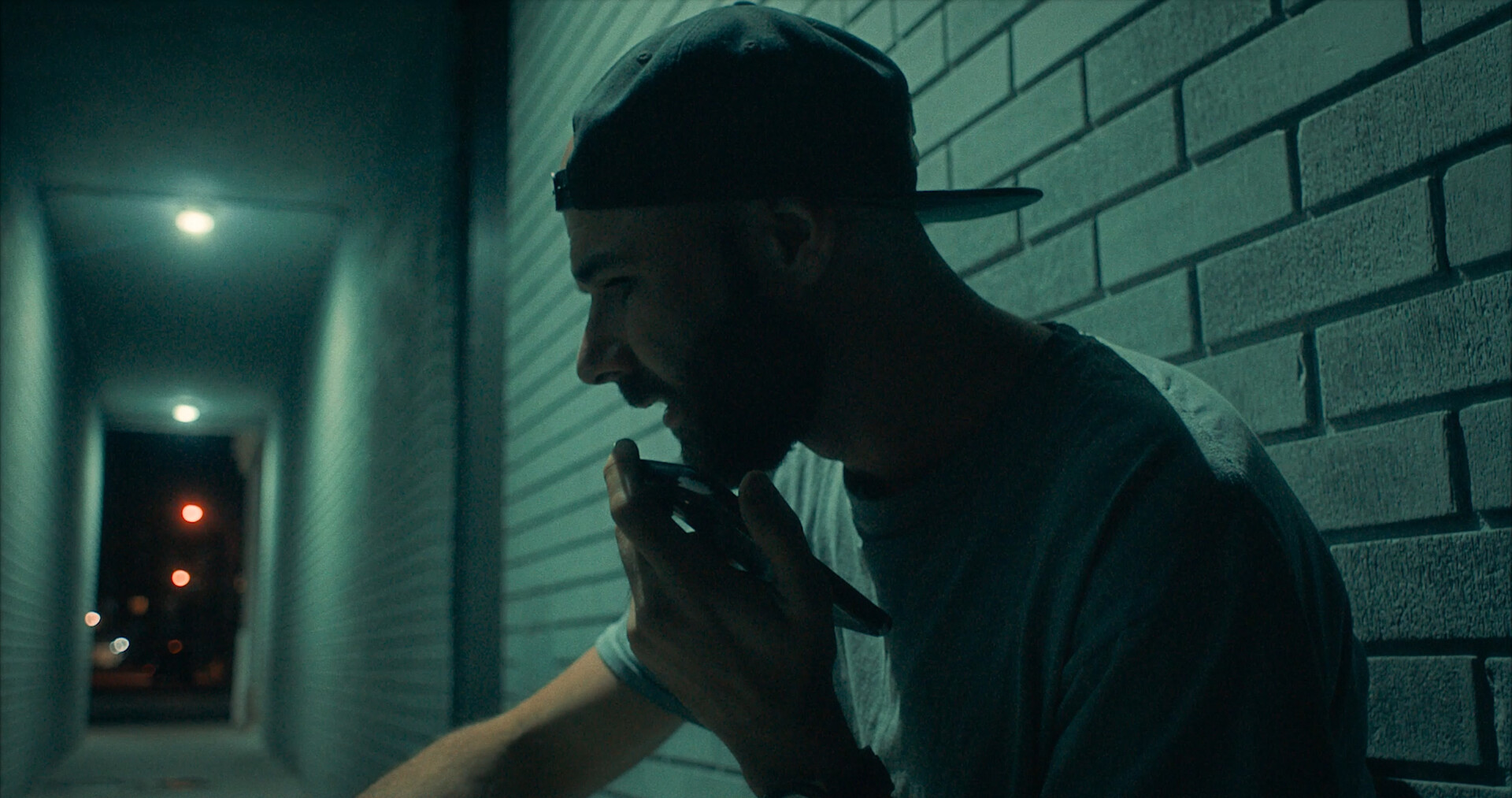Ryuichi Sakamoto | Opus
(Japan, 103 min.)
Dir. Neo Sora
Section: Spotlight (North American Premiere)
The best concert films embody the essence of their featured performances. Stop Making Sense captures The Talking Heads, and specifically frontman David Byrne, with the same breathless freneticism and dance-in-your-seat euphoria they inspire on stage. The Last Waltz sets The Band’s celebratory farewell concert against nostalgic golden hues with several cameras capturing every joyous interaction. Summer of Soul restores unseen footage from the 1969 Harlem Cultural Festival with the same revelatory clarity that Questlove imbues into his long overdue recollection of a moment lost to time.
Ryuichi Sakamoto | Opus does not initially appear to be a film that would sit amongst these ranks. Shot in a large recording studio with several microphones but no audience, Ryuichi Sakamoto’s one-man concert is a far more meditative, controlled experience. The energy radiating from the music, twenty stripped-down solo piano arrangements spanning Sakamoto’s vast career as a composer, is melancholic. The filmmaking is similar: slow pans and tilts, crisp black and white, barely any spoken dialogue or even monologue. For those unfamiliar with the late Sakamoto’s work, which includes scores for films like The Revenant (2015), The Sheltering Sky (1991), and 1987’s The Last Emperor (for which he shared an Oscar with David Byrne), it may be unclear what exactly it is we’re watching.
However, for fans of Sakamoto – who, let’s face it, this film is mostly made for – this is clearly a maestro performing his own elegy. Last year, the multi-medium composer passed away after a near decade-long battle with throat cancer. After he was first diagnosed in 2014, Sakamoto began contemplating his own death and found a new appreciation for making music knowing that his days were numbered, much of which is explored in the sensational 2017 documentary Ryuichi Sakamoto: Coda.
Now, ironically, Opus feels like its own coda. This is Sakamoto’s self-appointed final concert. It’s a farewell to a career performing music and a time capsule for future generations long after he is gone. It presents a master of his craft reflecting on his own mortality in ways both haunting and triumphant; you can see the frailty in Sakamoto’s fingers as much as you can feel the passion he puts into every note. An effective retrospective (some songs presented with never-before-heard arrangements) that retools his discography into a dreamlike swan song, Opus is the last word on a legacy that could only be uttered in the language of its subject: music.
Unable to perform live due to his deteriorating health, Sakamoto fully embraces a pre-recorded experience and meticulously crafts every element to fit his vision. Conceived in collaboration with his son, Neo Sora (also the film’s director), the film was heavily storyboarded and it shows. There are countless gorgeous visual compositions, highlighting Sakamoto’s performance style while inviting further insight into his relationship with the music. At points, Sakamoto holds tempo in his right hand while his left hand continues playing. His face, sometimes sporting pursed lips but other times a proud smile, candidly presents a man who puts thought and love into his music.
Sakamoto and Sora are also very cognizant of space. Studio 509 in Japan’s NHK Broadcast Center is thoughtfully decked out with standing microphones and various wires, arranged in a way that almost evokes a place of worship, with the piano as Sakamoto’s altar. In addition, Sakamoto’s song sequencing informs the lighting design, which changes to reflect mood. At one point, Sakamoto is illuminated only by a small lamp at the piano’s side; at another, only by a backlight, crisply outlining his silhouette. In contrast, the end of the film sees Sakamoto fully washed out by the studio’s main lighting, peak visibility and light for what is Sakamoto’s final final performance.
As touching as Opus is, at over an hour and forty minutes, it’s hard to say the final product fully sustains itself, especially for newcomers to Sakamoto’s work. Perhaps it is a few pieces too long as Sakamoto reaches divine musical climaxes multiple times, each false ending slightly more diminished by something having to follow it up. However, why not let the dead lie on their own terms? At one point, Sakamoto finishes a piece and becomes a bit exasperated. “This is tough, I’m pushing myself,” he says, his voice weak from years in his condition. However, after a short break, the maestro is back at it.
Although the film was shot over multiple days, Sora and editor Takuya Kawakami stitch every take together and present the entire concert as a culminating effort. It’s likely the most energy Sakamoto had put into a performance in several years, one that took so much of him that it was all he had left for this world. The film’s beautifully rendered final moments are the cinematic equivalent of his spirit being lifted from our earthly plain, capped off with one of Sakamoto’s favorite adages: Ars longa, vita brevis. Art is long, life is short. Sakamoto does not live on but his music will, and for it to live on as Opus, at least in its final movement, is monumental.
Ryuichi Sakamoto | Opus premieres at the New York Film Festival on Oct. 11.
Update (3/13/2024): The film opens in select theatres beginning March 15.













